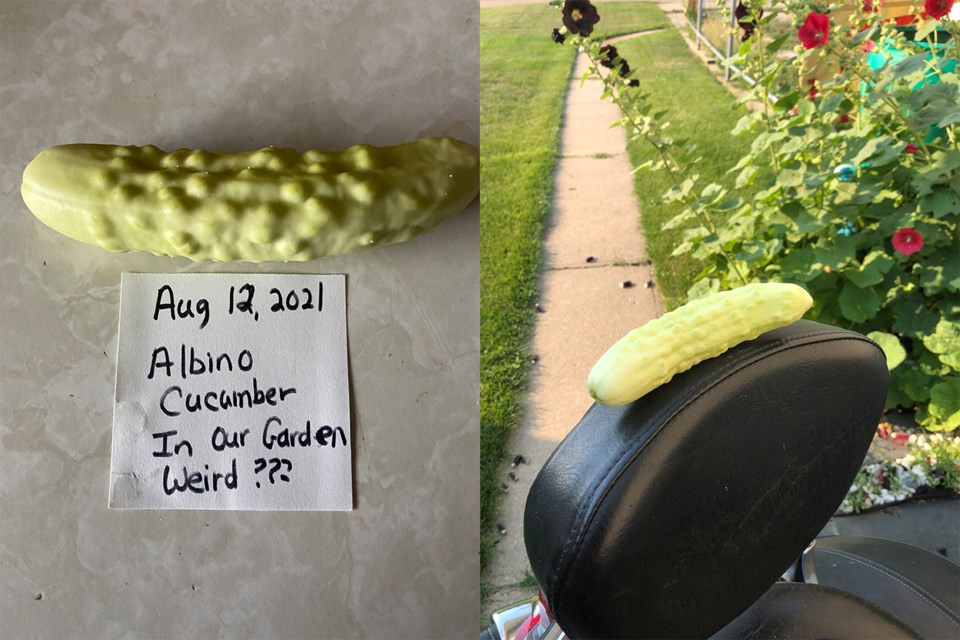Bonnyville — When Darcy Wasyluk and her partner Jerome Bourassa began harvesting their garden vegetables in August, they were shocked to see a fully grown, ghostly white cucumber with barely a hint of green. Then, a few weeks later they discovered another one.
Nothing seemed out of the ordinary when Wasyluk, planted her pickling cucumbers in early May and watched as her healthy cucumber patch bloomed with numerous flowers in the garden bed behind her house. It wasn’t until she began picking through the leaves and thick vines that were growing wildly up chicken wire that she spotted her first colourless vegetable.
“I always buy the pickling ones, the National Pickling Cucumbers and another pickling brand,” said Wasyluk, who was confounded by her discovery. “I've never seen that in my life. It looked like a pale gourd with bumps and all.”
Prior to picking the albino fruit, there was no indication that something was out of the ordinary. “I don't know whether it was crossed wrong, but the plants are all the same. There's no difference in the plant and their colour. It's really weird,” she explains.
Wasyluk says a common reaction when she shows people the unusual produce is they think “Oh yeah, it’s not real.”
Even though it is rare, however, the genetic mutation that causes albinism in mammals and other animal species, can also affect vegetation.
Hypochromia and albiflora refer to when a plant or its fruit are unable to produce chlorophyll. A plant may be fully albino or show partial traits like the cucumber pulled from Wasyluk’s garden.
In plants, albinism interferes with process of photosynthesis, because without any chlorophyll — the green pigment necessary for photosynthesis — plants and produce are unable harness the energy from the sun to make sugars. Eventually the plant will run out of food and is unlikely to survive for long.
Although Wasyluk’s cucumber plants showed no sign of genetic mutations, some of her produce did. Giving her a rare taste of a scientific anomaly.
According to Wasyluk, “The cucumber taste was there but it was very, very mild compared to what a cucumber normally would be.”
For now, Wasyluk doesn’t know how she feels about saving the seeds of the pale cucumber to sow next year, but she says she will think about it.



